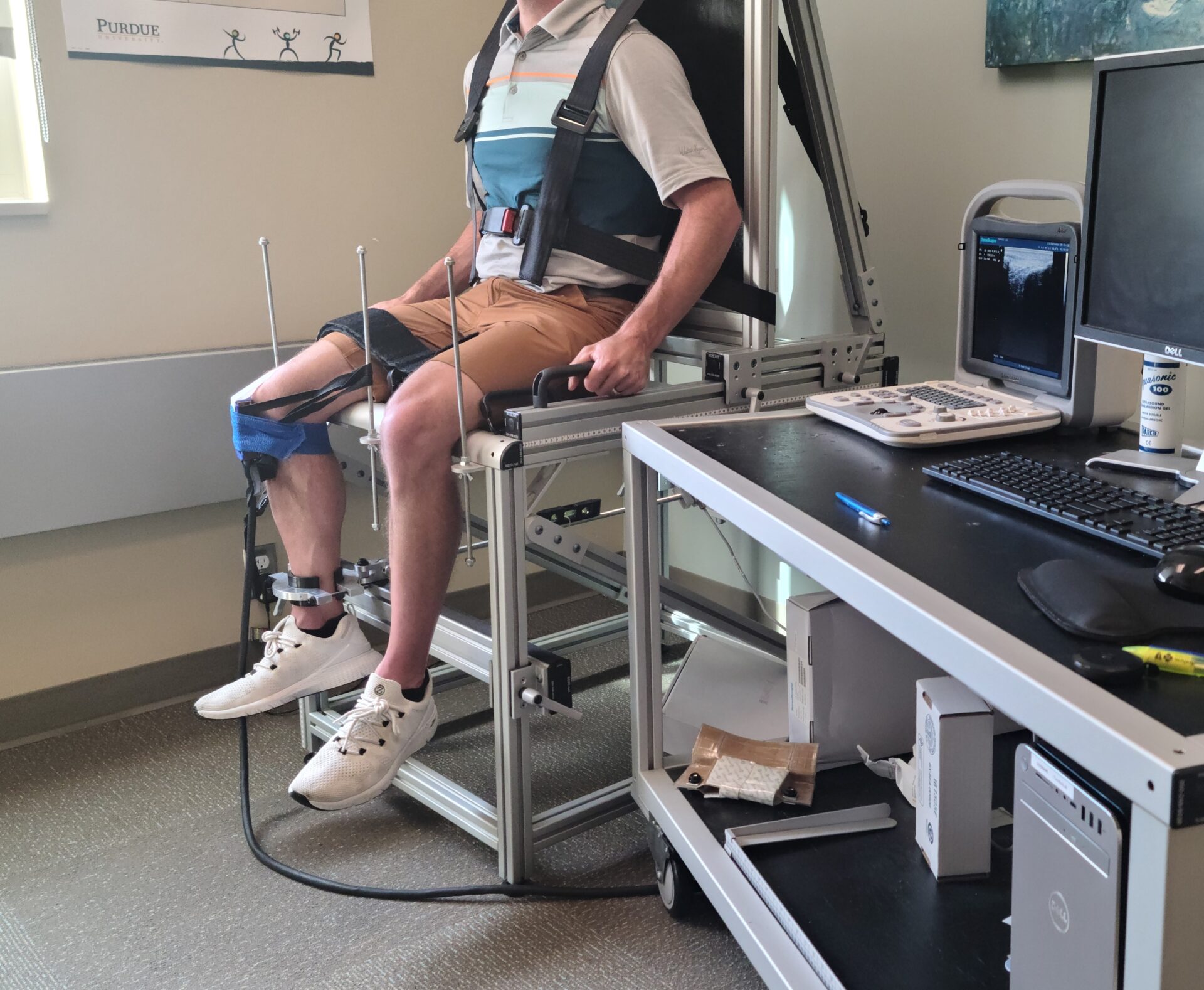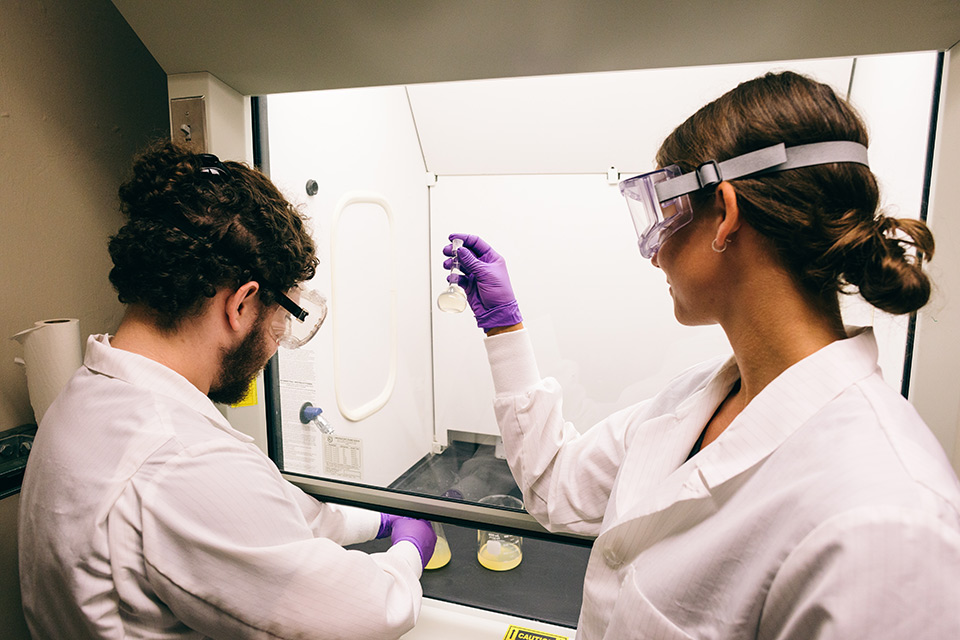Take your next giant leap in research
Dr. Carroll’s academic work has molded an overall portfolio of research, teaching, and service around a central theme of tendon biology. The long-term goal of Dr. Carroll’s research is to determine the mechanisms contributing to poor tendon health and discover approaches to normalize tendon function. Tendon pathology (tendinopathies) affects 1 out of every 4 Americans with particularly high rates in person with diabetes. Tendinopathies lead to reduced quality of life and considerable economic burden. Dr. Carroll’s multi-faceted research portfolio has projects focused on endogenous circulating mediators of tendon pathology. This includes advanced glycation end-products (AGEs, which are elevated in persons with diabetes) and hormones such as estrogen. His work also focuses on nutritional interventions and how their combination with exercise can serve as a modifier for tendon health. Dr. Carroll’s work spans the translational spectrum – from molecular biology experiments to test mechanisms of disease to human clinical trials to test treatment efficacy.
Research
Our lab investigates various aspects of tendon physiology focused on health and healing. We employ cellular, murine, and human models to investigate tendon pathologies in health and diabetic individuals. Click below to learn more about the individual projects.
Learn More
Human Project
Funded by a 5-year, multimillion dollar NIH Grant, this project aims to investigate the relationship between serum advanced glycation end products and patellar tendon biomechanical properties and tendon fibrillar organization in healthy adults and adults with diabetes/pre-diabetes. We employ multiple methods of investigation including serum analysis, MRI, and ultrasound.
Deterioration of regular tendon fibril morphology with declining tendon biomechanical properties is common in people with diabetes.Patients often remain asymptomatic for years despite significant underlying ECM disorganization. Once symptomatic, changes in tendon properties in patients with diabetes become challenging to reverse. A reliable serum surrogate of tendon properties would allow clinicians to identify at-risk patients, recommend interventional strategies, and quickly assess the progress of clinical interventions.

Mouse Project
The formation of AGE non-enzymatic crosslinks with collagen has been considered the primary mechanism of tendon pathology in persons with diabetes. Yet, recent studies suggest that AGE crosslink formation in tendons of humans or mice with diabetes is less extensive than implied from ex vivo studies. AGEs also accumulate in the serum of patients with diabetes. In our preliminary work, serum AGE concentrations tend to correlate with tangent modulus and demonstrate a strong relationship to tendon volume. In vitro, AGE treatment dramatically impairs tendon cell proliferation36 and promotes a gene transcript profile consistent with ECM degradation.69 We also noted reductions in cellular metabolism and proliferation when treating cells with serum diabetic rats. We hypothesizethat deterioration of tendon properties in diabetes is predominately due to elevations in serum AGEs and activation of RAGE signaling. We will assess the impact of elevated serum AGEs and RAGE deletion/inhibition on tendon biomechanics and morphology in mouse models.
Learn MoreRecent Lab Events
Excited by our first visit to Natick, MA with Purdue PhD student Maj. Eric Gutierrez to establish a research collaboration with teams at the U.S. Army Research Institute of Environmental Medicine (USARIEM). We look forward to researching approaches to increase solider readiness by improving tendon health and accelerating recovery from tendon injuries.
Learn More